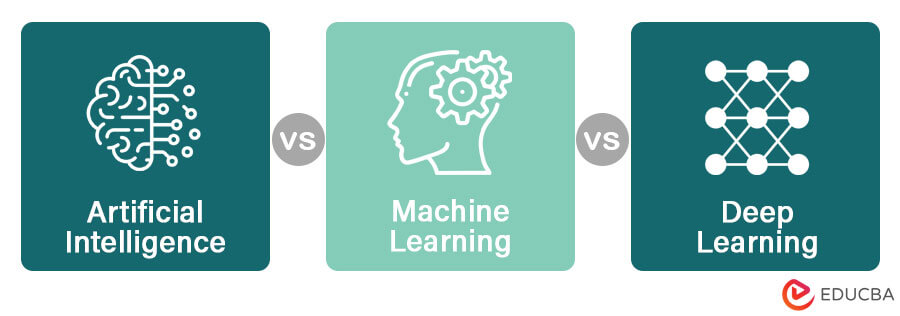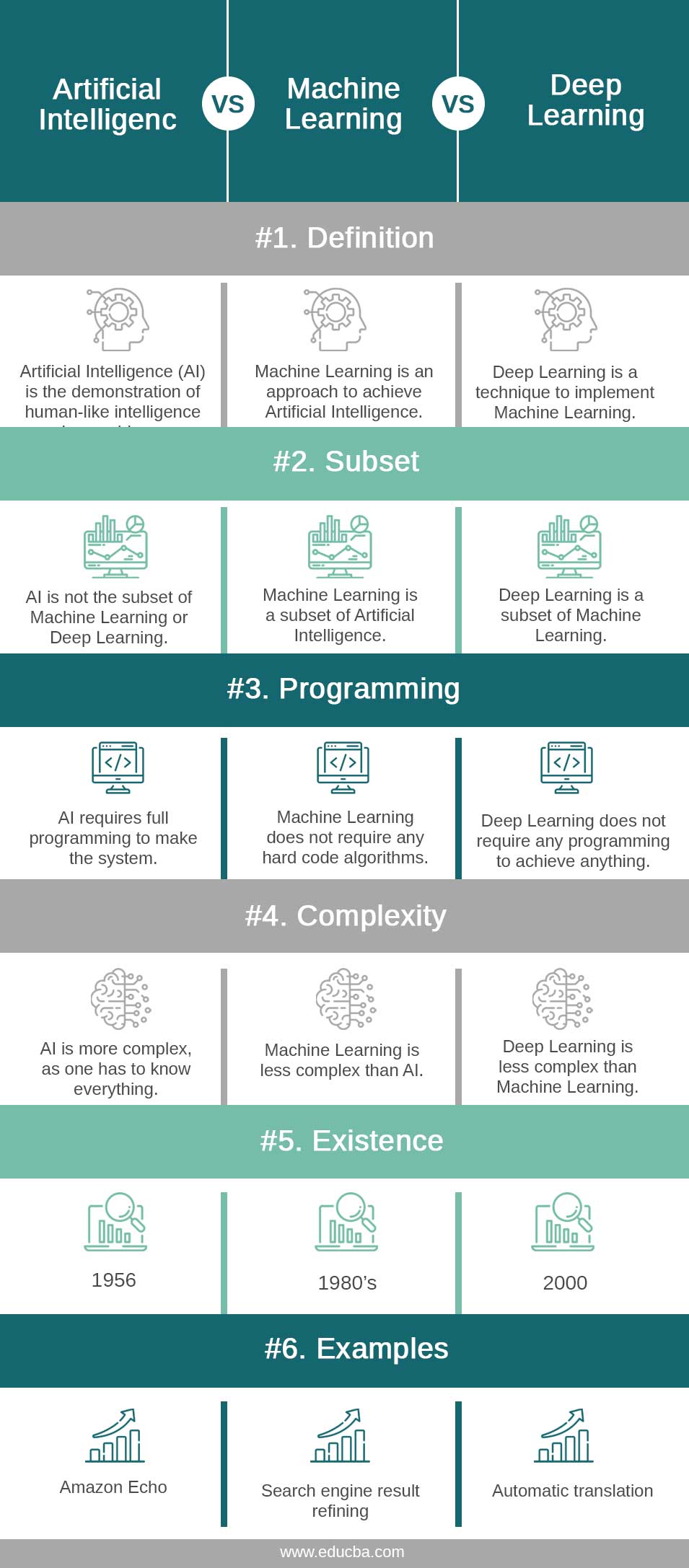Introduction: Artificial Intelligence vs Machine Learning vs Deep Learning
The following article outlines the differences between Artificial Intelligence vs Machine Learning vs Deep Learning.
Artificial Intelligence (AI) is a branch of computer science that deals with creating intelligent machines. These machines are designed to mimic human behavior and intelligence. There are three main categories of AI: Narrow AI, which is designed to perform specific tasks; Artificial General Intelligence (AGI), which resembles human-level AI that can perform a wide range of tasks; and Super Intelligent AI, which is claimed to be smarter than humans.
Machine Learning (ML) is a subset of AI that enables computers to handle situations by training, analyzing, observing, and gaining experience. ML is considered one of the best tools of AI, particularly in business. While all Machine Learning counts as AI, not all AI counts as Machine Learning.
Deep Learning (DL) is a subset of Machine Learning, and it refers to a deep artificial neural network. These networks use algorithms that are highly accurate for problems like sound and image recognition. DL allows computers to learn without being explicitly programmed to do so.
Machine Learning is based on the principle that machines can learn by themselves with the help of data from various sources. It can predict outcomes based on complex data patterns and sets, and it is different from hard-coding software programs that require specific instructions for task completion. ML is dynamic and can change itself when exposed to more data, without any human intervention. Deep refers to the technical term that describes the layer of the neural network. While a superficial network has a single hidden layer, a deep network has multiple layers, allowing it to acquire data features.
Head-to-Head Comparison (Infographics): Artificial Intelligence vs Machine Learning vs Deep Learning:
Below are the top 6 differences between Artificial Intelligence vs Machine Learning vs Deep Learning:
Key Differences: Artificial Intelligence vs Machine Learning vs Deep Learning
- Artificial Intelligence has different types, such as reactive machines where the system only reacts and does not have memory. Machine Learning enables a machine to make decisions based on past data, while Deep Learning enables a machine to make decisions with the help of artificial neural networks.
- While Artificial Intelligence has a limited amount of memory, Machine Learning mainly works with a smaller amount of training data. Deep Learning requires a large amount of training data.
- Artificial Intelligence has other types, such as the theory of mind, which means the system is able to understand human emotions and adjust behavior according to human understanding. Machine Learning works on low-end systems, while Deep Learning requires high-end systems to work.
- Artificial Intelligence creates systems with self-awareness, meaning the system is aware of itself, understands its states, predicts other people’s feelings, and acts accordingly. In Machine Learning, most features need to be identified in advance and manually coded, while in Deep Learning, the machine learns the features from the data it is provided.
- While Artificial Intelligence mainly works on the whole problem, in Machine Learning, the problem is divided into parts and solved individually before being combined. In Deep Learning, the problem is solved in an end-to-end manner.
- Testing applications with Artificial Intelligence takes a very long time. Machine Learning takes longer than Deep Learning, while Deep Learning takes less time to test the process.
- Artificial Intelligence has defined rules, while Machine Learning has crisp rules to tell why a decision was made. In Deep Learning, the system takes decisions based on its own logic, which can sometimes be difficult to interpret.
Comparison Table: Artificial Intelligence vs Machine Learning vs Deep Learning
| Basis for comparison | Artificial Intelligence | Machine Learning | Deep Learning |
| Definition | Artificial Intelligence (AI) is the demonstration of human-like intelligence by machines. | Machine Learning is an approach to achieve Artificial Intelligence. | Deep Learning is a technique to implement Machine Learning. |
| Subset | AI is not the subset of Machine Learning or Deep Learning. | Machine Learning is a subset of Artificial Intelligence. | Deep Learning is a subset of Machine Learning. |
| Programming | AI requires full programming to make the system. | Machine Learning does not require any hard code algorithms. | Deep Learning does not require any programming to achieve anything. |
| Complexity | AI is more complex, as one has to know everything. | Machine Learning is less complex than AI. | Deep Learning is less complex than Machine Learning. |
| Existence | 1956 | 1980’s | 2000 |
| Examples | Amazon Echo | Search engine result refining | Automatic translation |
Conclusion
Artificial Intelligence, Machine Learning, and Deep Learning are all related to each other, with the goal of achieving things quickly and at a rapid pace. As previously discussed, Machine Learning is a subset of AI, and Deep Learning is a subset of Machine Learning. Artificial Intelligence is the bigger picture and the core element for achieving various things in the world of computers and information technology.
Recommended Articles
Here are some further related comparison articles:




